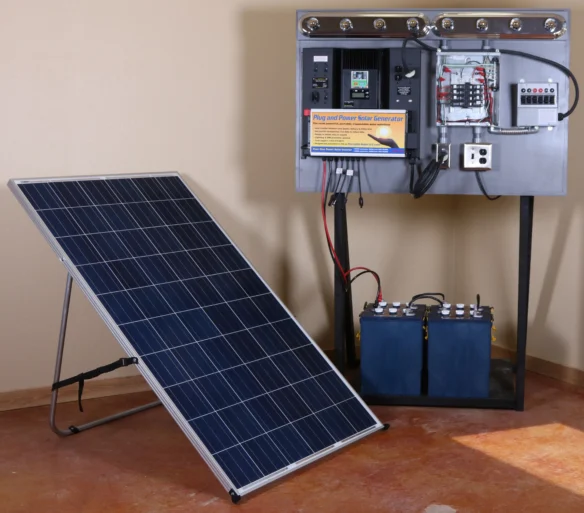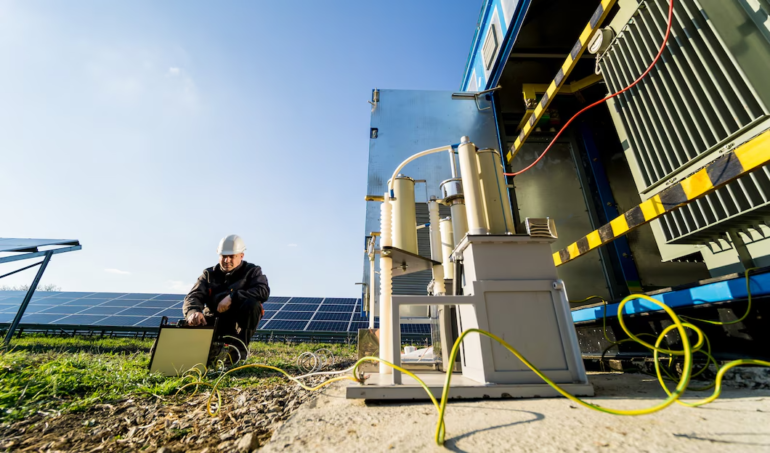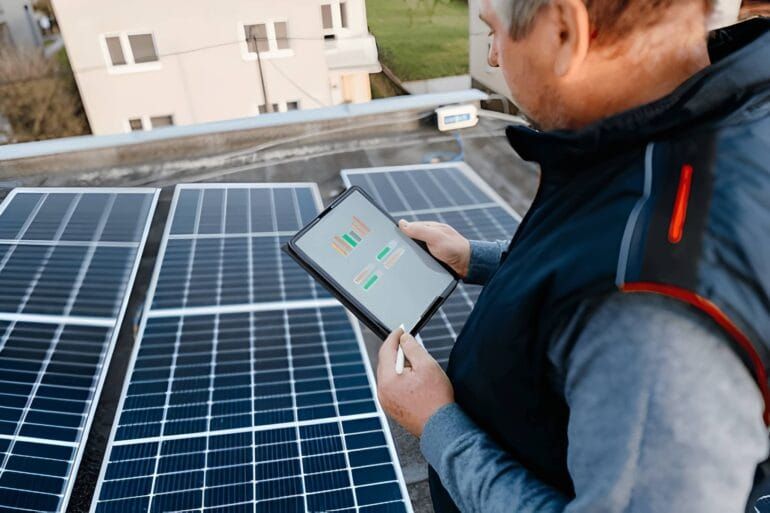Unlock the power of sustainable energy with solar battery for house in Australia. Discover how these innovative devices can revolutionize your energy usage, reduce your reliance on the grid, and provide backup power during outages. Whether you’re looking to lower your electricity bills, minimize your carbon footprint, or increase your energy independence, solar batteries offer a reliable and efficient solution. Join the renewable energy revolution and take control of your energy future with solar batteries for your house.
Solar Batteries and Their Importance
Solar batteries are pivotal components of residential solar energy systems, offering numerous benefits that enhance energy efficiency, reliability, and sustainability. Their importance lies in their ability to store excess solar energy generated during the day for later use, particularly during periods of low sunlight or high electricity demand. By capturing and storing renewable energy, solar batteries enable homeowners to reduce their reliance on the traditional grid, increase energy independence, and lower utility bills. Moreover, solar batteries contribute to environmental conservation by promoting the adoption of clean energy solutions and reducing carbon emissions associated with fossil fuel-based electricity generation. Overall, the integration of solar batteries into residential solar setups represents a significant step towards achieving a more resilient, sustainable, and decentralized energy future.
Enhanced Energy Independence and Resilience
Solar batteries play a vital role in enhancing energy independence and resilience for homeowners. By storing surplus solar energy, individuals can minimize their dependence on grid electricity, particularly during peak demand periods or grid outages. This increased self-reliance empowers homeowners to have greater control over their energy consumption and costs while reducing their vulnerability to external factors such as utility rate hikes or power disruptions. Solar batteries provide backup power during emergencies, ensuring that essential functions in the home remain operational even when the grid is down.
This added layer of resilience not only enhances comfort and safety but also contributes to overall grid stability by reducing strain during peak periods and minimizing the risk of widespread outages. In essence, solar batteries offer homeowners peace of mind and security in knowing that they have a reliable source of clean energy to power their homes when needed.
Benefits of Solar Battery for House
Installing a solar battery system offers numerous advantages for homeowners. Firstly, it provides energy independence by allowing households to store excess solar power generated during the day for use at night or during periods of low sunlight. This reduces reliance on the grid and helps to mitigate the impact of fluctuating electricity prices. Solar batteries enhance resilience by providing backup power during grid outages, ensuring uninterrupted electricity supply to essential appliances and devices. Moreover, investing in solar batteries promotes environmental sustainability by maximizing the utilization of clean, renewable energy sources and reducing dependence on fossil fuels, thereby reducing carbon emissions and mitigating climate change.
 From a financial perspective, solar batteries can lead to long-term cost savings by reducing electricity bills and potentially increasing the value of the property. Furthermore, many governments and utilities offer financial incentives and rebates to encourage the adoption of solar energy systems, further enhancing the economic benefits for homeowners.
From a financial perspective, solar batteries can lead to long-term cost savings by reducing electricity bills and potentially increasing the value of the property. Furthermore, many governments and utilities offer financial incentives and rebates to encourage the adoption of solar energy systems, further enhancing the economic benefits for homeowners.
Factors to Consider When Choosing a Solar Battery
When selecting a solar battery for your home, several factors should be taken into consideration to ensure optimal performance and suitability for your specific needs. These factors include battery capacity, efficiency, lifespan, compatibility with existing solar PV systems, warranty coverage, and cost. It’s essential to assess your energy consumption patterns and storage requirements to determine the appropriate size and configuration of the solar battery system. Furthermore, consider the reputation and reliability of the manufacturer and installer, as well as customer reviews and testimonials. By carefully evaluating these factors and conducting thorough research, homeowners can make informed decisions and choose the best solar battery solution for their house.
Top Solar Battery Options in Australia
When it comes to selecting a solar battery for residential use in Australia, several top options stand out in terms of performance, reliability, and features. One of the leading choices is the Tesla Powerwall, renowned for its high energy density, sleek design, and seamless integration with solar PV systems. The Powerwall offers a large storage capacity, advanced monitoring capabilities, and long-term durability, making it an ideal choice for homeowners looking to maximize their energy independence and savings. Another popular option is the LG Chem RESU series, known for its compact size, high efficiency, and compatibility with various inverter brands. The RESU batteries are designed to withstand harsh environmental conditions and offer flexible installation options, making them suitable for a wide range of residential applications.
The BYD B-Box is gaining traction in the Australian market due to its modular design, scalable capacity, and competitive pricing. With features like deep discharge capability and high cycle life, the B-Box provides reliable backup power and excellent performance in diverse settings. Other notable solar battery options in Australia include the sonnenBatterie, Redflow ZCell, and Pylontech Lithium batteries, each offering unique advantages and capabilities to meet the specific needs of homeowners.
Installation and Maintenance
Installing and maintaining a solar battery system is crucial for ensuring optimal performance and longevity. Proper installation involves assessing the home’s energy needs, determining the suitable location for the battery, and integrating it with the existing solar PV system or grid connection. Hiring a professional installer with experience in solar battery installations is advisable to ensure compliance with local regulations and safety standards. Regular maintenance is essential to keep the system operating efficiently. This includes inspecting the battery and its components for any signs of damage or wear, checking connections, and performing software updates as needed. It’s also important to monitor the system’s performance regularly and address any issues promptly to prevent potential downtime or damage. By following manufacturer guidelines and scheduling routine maintenance checks, homeowners can maximize the lifespan of their solar battery system and optimize its energy-saving benefits for years to come.
 Financial Considerations and Incentives
Financial Considerations and Incentives
When considering the installation of a solar battery for a house, various financial aspects and incentives come into play. Understanding these factors is crucial for making informed decisions and maximizing the benefits of solar energy.
Cost of Solar Battery Systems
The upfront cost of purchasing and installing a solar battery system can vary depending on factors such as the size and capacity of the battery, brand, installation complexity, and location. Typically, the cost includes not only the battery itself but also installation labor, additional equipment like inverters, and any necessary upgrades to the existing solar PV system. While solar battery prices have decreased in recent years due to advancements in technology and increased market competition, they still represent a significant investment for homeowners. However, it’s important to consider the long-term savings and return on investment (ROI) that solar batteries can provide through reduced electricity bills and potential revenue from energy storage programs or grid services.
Government Rebates and Incentives
To encourage the adoption of renewable energy technologies like solar batteries, governments at the federal, state, and local levels often offer various rebates, incentives, and tax credits. These financial incentives can significantly offset the upfront cost of purchasing and installing a solar battery system, making it more accessible and affordable for homeowners. Common incentives include solar rebates, feed-in tariffs, renewable energy certificates (RECs), tax credits, grants, and low-interest loans. Eligibility criteria, incentive amounts, and application processes may vary depending on the location and specific program requirements. Therefore, homeowners interested in installing a solar battery should research available incentives in their area and consult with local authorities or certified installers to maximize potential savings.
Return on Investment (ROI)
Calculating the return on investment (ROI) for a solar battery system involves assessing the upfront costs against the expected savings and benefits over time. Factors such as electricity rates, energy consumption patterns, solar generation capacity, and available incentives all contribute to determining the ROI of a solar battery investment. While the initial investment may seem substantial, many homeowners can recoup their costs within a few years through reduced energy bills and potential revenue streams from selling excess energy back to the grid or participating in demand response programs. Solar battery systems can increase the value of a property and appeal to environmentally-conscious buyers, further enhancing the overall ROI. By considering the financial aspects and incentives available, homeowners can make informed decisions about investing in solar battery technology and reap the long-term financial benefits of renewable energy.
Conclusion
Installing a solar battery for your house offers numerous benefits, including energy independence, reduced electricity bills, and environmental sustainability. By storing excess solar energy generated during the day, solar batteries enable homeowners to power their homes with clean and renewable energy even when the sun isn’t shining. Solar batteries can provide backup power during grid outages, enhancing reliability and resilience. However, choosing the right solar battery system involves considering various factors such as capacity, compatibility with existing solar PV systems, installation requirements, and financial considerations. By evaluating these factors and exploring available incentives, homeowners can make informed decisions and maximize the long-term benefits of solar energy storage.
FAQs
What size solar battery do I need for my house?
The size of the solar battery depends on factors like household energy consumption, solar generation capacity, and desired backup power duration.
Are there government incentives for installing a solar battery?
Yes, many governments offer incentives such as rebates, tax credits, and feed-in tariffs to encourage the adoption of solar energy storage systems.
Do solar batteries require regular maintenance?
Solar batteries generally require minimal maintenance, but regular inspections and occasional cleaning may be necessary to ensure optimal performance and longevity.

 Financial Considerations and Incentives
Financial Considerations and Incentives





